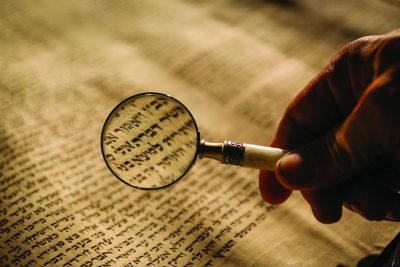
by: Ilse Strauss, News Bureau Chief
 The Organisation for Economic Co-operation and Development (OECD) published the 2022 edition of its annual Education at a Glance report in October last year. In no less than 462 pages crammed with statistics, graphs, footnotes and summaries, the document compares and contrasts the state of education in 45 countries for the 2021/2022 school year, ranking the nations from best to worst.
The Organisation for Economic Co-operation and Development (OECD) published the 2022 edition of its annual Education at a Glance report in October last year. In no less than 462 pages crammed with statistics, graphs, footnotes and summaries, the document compares and contrasts the state of education in 45 countries for the 2021/2022 school year, ranking the nations from best to worst.
The four top slots went to Canada, Japan, Luxembourg and South Korea, countries known for maple syrup, sushi, a sky-high GDP and a global influence on pop culture. Then, in the fifth place, came Israel, a nation known for biblical history, conflict and controversy.
According to the report, 50.12% of Israel’s population holds a higher education qualification, outperforming powerhouses like the US, the UK, Switzerland, Russia and Australia. It’s also a whopping 11.12% higher than the OECD average of 39%.
Israel’s prominent position in the 2022 survey is no fluke. The Jewish state has consistently scored among the first five ever since the report was first published. In fact, previous years’ rankings have placed Israel in the second, third and fourth place.
 Unlikely Odds
Unlikely OddsCommanding a top spot on the list of the world’s academic elite is no small feat, even under the most ideal circumstances. Yet in Israel, the circumstances are anything but ideal. In fact, education is often forced to play second fiddle to more pressing concerns, like survival, for example.
At age 18—when their peers around the world head to college—Israeli teenagers put on a uniform to protect their country from those who would take it by force. This means that Israelis can only start cracking the books in their early 20s—when their peers around the world are already preparing to don a cap and gown.
Even then, studies must often take a backseat to reserve duty for a month every year, conscription during times of war or heightened tension, terror attacks and the myriad of other security threats that form part of everyday life in Israel. Add to that the fact that a sizable percentage of Israel’s civilian population—not only its combat veterans—bear the physical, emotional and psychological scars of continuous terror, rocket and missile attacks. Also, bear in mind that the entire educational system is but 75 years young and functions in a language that was all but extinct a century ago.
Why then, with the odds for academic prosperity stacked against the inhabitants of the Jewish state, does Israel continue to rise to the top as one of the world’s most educated nations?
The short answer is that Israelis view education as the passport to a successful, prosperous future. Israel’s economy is fast-paced and its job market highly competitive, with high academic performance and a string of qualifications serving as the entry ticket. It is the means by which Israelis set themselves apart from the thousands of others eyeing the same position.
Yet the ties that bind Israelis to education are ancient, reaching back in time to well beyond the homecoming of a people and the rebirth of a nation. For centuries past, Jewish tradition has strongly emphasized education and study as lifelong pursuits. In fact, the value of education seems to be hardwired into the Jewish DNA.
 In Genesis 18:19, Abraham, the father of the Jewish people, is lauded for teaching his offspring God’s ways. Deuteronomy 6:6–9 emphasizes instruction as one of the basic duties that parents must fulfill, and the Book of Proverbs is packed with promises of all kinds of blessing for those who pursue knowledge, learning and wisdom.
In Genesis 18:19, Abraham, the father of the Jewish people, is lauded for teaching his offspring God’s ways. Deuteronomy 6:6–9 emphasizes instruction as one of the basic duties that parents must fulfill, and the Book of Proverbs is packed with promises of all kinds of blessing for those who pursue knowledge, learning and wisdom.
Basic education for boys and men was widespread during the Second Temple Period, and during the first century, prominent rabbis considered schooling compulsory. Even the Talmud (rabbinic commentary on Jewish tradition and the Hebrew Scriptures) teaches that children should start school aged six and that other tasks should not interfere with their education.
Then, the two millennia the Jewish people spent in exile, persecution, anti-Semitism and discrimination served as the unexpected incubator for academic excellence.
In medieval Europe, Jews were often barred from owning land. Automatically disqualified from pursuing farming as a means to provide for their families, Jews had to make alternative plans. These alternative career options included entrepreneurial and white-collar professions like trading, medicine, law, accounting and moneylending—all occupations that required a higher level of education.
Moreover, as the years of persecution wore on and forced deportation loomed as an all too common threat, education became a precious intangible asset that the Jewish people could carry with them regardless of where they went.
The peculiar combination of tradition and tragedy has yielded fruit. According to a study conducted by the Pew Research Center, Jews are better educated than any other religious group in the world, boasting an average of 13.4 years of schooling and a large percentage holding a higher education qualification.
That inherent understanding of the importance of education—and the consequent pursuit of knowledge, learning and wisdom—is also woven into the fabric of the Israeli society today. It is what prompts young (and not so young) Israelis to continue hitting the books when their peers have already called it quits.
Yet perhaps education itself has never been the objective—or the reward. Thousands of years ago, God promised Abraham that the nation that would be born from him would serve as a blessing to the nations. And today, we see God’s partial fulfilment of that pledge in the fruit that springs forth from the seedbed of Israeli education. The desert blossoms. Paraplegics walk. Drinking water comes from thin air. Diseases are caught early enough for treatment.
Yes, indeed. Perhaps education was never the objective. Maybe it was always intended as a vehicle to bring about the partial fulfilment of God’s pledge: “And in you all the families of the earth shall be blessed” (Gen. 12:3).
Photo Credit: Click on photo to see photo credit
All logos and trademarks in this site are property of their respective owner. All other materials are property of Bridges for Peace. Copyright © 2025.
Website Site Design by J-Town Internet Services Ltd. - Based in Jerusalem and Serving the World.